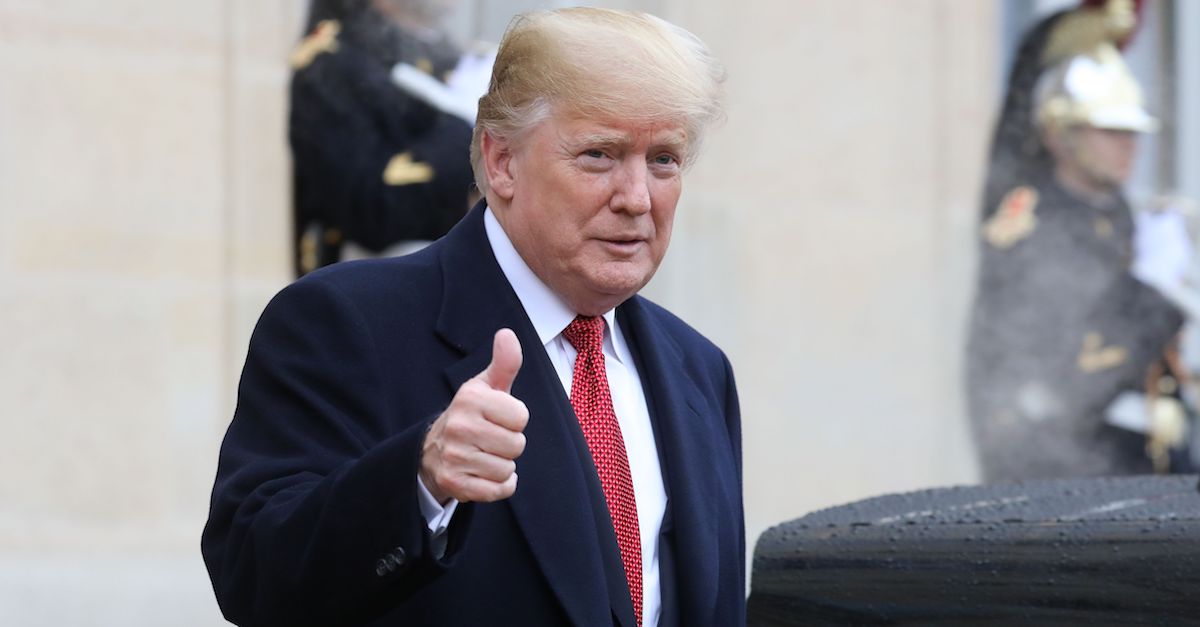
House Democrats have subpoenas at the ready for Special Counsel Robert Mueller‘s “full” Russia report, they announced on Monday. We already knew it would happen, but is it going to work? At least one legal expert believes that this is “unlikely to succeed.”
House Judiciary Committee Chairman Rep. Jerrold Nadler (D-N.Y.) said Monday, “Congress requires the full and complete Special Counsel report, without redactions, as well as access to the underlying evidence.”
“Attorney General Barr has thus far indicated he will not meet the April 2 deadline set by myself and five other Committee chairs, and refused to work with us to provide the full report, without redactions, to Congress,” he added. “I have asked the Committee to authorize me to issue subpoenas, if necessary, to compel the production of documents and testimony.”
U.S. Attorney General William Barr outlined on Friday what wouldn’t be a part of the public version of Mueller’s report (i.e. what would be redacted), specifically: information related to ongoing investigations, identification of intelligence sources and methods, and information that “unduly” prejudices uncharged individuals. Barr also said that the “Special Counsel is involved” in this redaction process.
Prior to that, he released a four-page rundown of Mueller’s “principal conclusions.” He said Mueller had no more indictments, that Mueller did not allege conspiracy between President Donald Trump/Trump campaign and the Russian government, and that Mueller didn’t exonerate Trump of obstruction of justice but didn’t allege it either.
Democrats aren’t about to take Barr’s word for it, though—especially as Trump gloats over the implications—but it could take years before they get what they actually want, according to CNN legal analyst, attorney, and impeachment expert Ross Garber.
“A subpoena for the entire Mueller Report will likely be unsuccessful, and to attempt to enforce it, the House would have to embark on a long civil litigation process,” Garber said. “It is nevertheless a logical step in a negotiation process with the Department of Justice. It also makes sense as a public relations move to show the American people that Congress is trying to do its job.”
Garber pointed out that the House of Representatives once subpoenaed then-President Barack Obama‘s Attorney General Eric Holder over the Fast and Furious controversy. What happened? Litigation dragged out for years.
“DOJ refused to fully comply citing executive privilege. The House held then-Attorney General Holder in contempt and took the DOJ to court,” Garber recalled. “Litigation lasted many years, ultimately resulting in a negotiated resolution.”
What a negotiated resolution like this would look like is anyone’s guess. What we do know is a little bit of the history associated with Holder’s resistance of the subpoena.
Operation Fast and Furious involved the ATF and others who facilitated illegal gun sales to individuals connected to Mexican drug cartels in an effort to track both parties involved in the transaction. The DOJ Inspector General reported that nearly 2,000 firearms were illegally purchased for $1.5 million. It was also reported that weapons used in the murder of US Border Patrol Agent Brian Terry were linked to these sales.
Holder responded by recommending that Obama assert executive privilege.
“I am writing to request that you assert executive privilege with respect to confidential Department of Justice documents that are responsive to the subpoena issued by the Committee of Oversight and Government Reform of the United States House of Representatives on October 25, 2011,” Holder said at the time. “The subpoena relates to the Committee’s investigation into Operation Fast and Furious, a law enforcement operation conducted by the Bureau of Alcohol, Tobacco, Firearms and Explosives and the United States Attorney’s Office for the District of Arizona to stem the illegal flow of firearms from the United States to drug cartels in Mexico.”
“I respectfully request that you assert executive privilege over the identified documents,” he said. “This letter sets forth the basis for my legal judgment that you may properly do so.” Holder was cited for contempt.
It’s worth mentioning that last Friday Barr didn’t rule out Trump and his lawyers getting involved. In fact, he reminded Trump that he does have the authority to get involved.
“Although the President would have the right to assert privilege over certain parts of the report, he has stated publicly that he intends to defer to me and, accordingly, there are no plans to submit the report to the White House for a privilege review,” Barr said.
Will that change now that subpoenas are out in force? When asked whether he thinks Barr will recommend that Trump invoke executive privilege, as Holder did with Obama, Garber said the following:
Presidents since George Washington have asserted authority to keep some matters confidential, and I expect Attorney General Barr will recommend that President Trump do the same. The Supreme Court has formally recognized such an “executive privilege.” Although its parameters have not been precisely defined, courts have upheld its applicability to internal White House communications and executive branch deliberations. So if the Mueller Report contains this kind of information, we might well see the assertion of executive privilege to maintain its confidentiality.
[Image via Ludovic Marin/AFP/Getty Images]